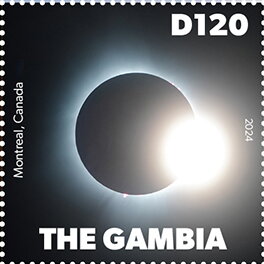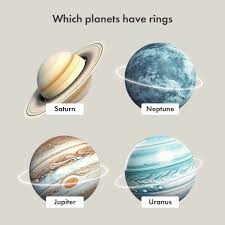Stamp: Montreal, Canada (Gambia 2024)
Montreal, Canada (Gambia 2024)
31 July (Gambia ) within release Total Solar Eclipse April 8, 2024 - North America (2024) goes into circulation Stamp Montreal, Canada face value 120 Gambian dalasi
| Stamp Montreal, Canada in catalogues | |
|---|---|
| Colnect codes: | Col: GM 2024.07.31-05d |
Stamp is square format.
Also in the issue Total Solar Eclipse April 8, 2024 - North America (2024):
- Stamp - Indiana, USA face value 100;
- Stamp - Montreal, Canada face value 120;
- Stamp - Oakville, Ontario, Canada face value 280;
- Stamp - Ohio, USA face value 90;
- Stamp - Texas, USA face value 110;
- Souvenir Sheet - Total Solar Eclipse April 8, 2024 face value 280;
- Mini Sheet - Total Solar Eclipse April 8, 2024 - North America face value 420;
|
Data entry completed
50%
|
|
|---|---|
| Stamp Montreal, Canada in digits | |
| Country: | Gambia |
| Date: | 2024-07-31 |
| Print: | Offset lithography |
| Emission: | Agency Issue |
| Format: | Stamp |
| Face Value: | 120 Gambian dalasi |
Stamp Montreal, Canada it reflects the thematic directions:
A planet is a large, rounded astronomical body that is generally required to be in orbit around a star, stellar remnant, or brown dwarf, and is not one itself. The Solar System has eight planets by the most restrictive definition of the term: the terrestrial planets Mercury, Venus, Earth, and Mars, and the giant planets Jupiter, Saturn, Uranus, and Neptune. The best available theory of planet formation is the nebular hypothesis, which posits that an interstellar cloud collapses out of a nebula to create a young protostar orbited by a protoplanetary disk. Planets grow in this disk by the gradual accumulation of material driven by gravity, a process called accretion.
The Sun, also known as Sol, is a star at the center of the solar system. It is a white star that gives off different types of energy such as infrared energy (heat), ultraviolet light, radio waves and light. It also gives off a stream of particles, which reaches Earth as "solar wind". The source of all this energy is nuclear fusion. Nuclear fusion is the reaction in the star which turns hydrogen into helium and makes huge amounts of energy. It is a nearly perfect ball of hot plasma.


